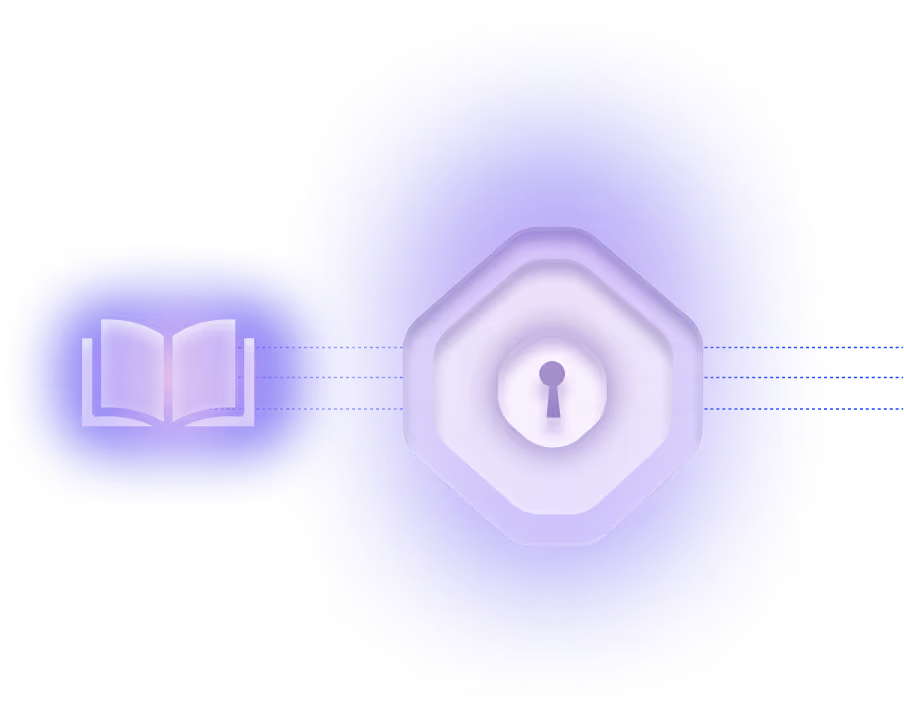Okta Application

What is an Okta Application?
An Okta Application refers to a configured integration within the Okta Identity and Access Management (IAM) platform that enables secure authentication, authorization, and lifecycle management for both human and non-human identities (NHIs). These applications serve as policy enforcement points, connecting Okta’s centralized identity controls with external systems—such as cloud platforms, SaaS services, developer tools, and infrastructure components. Okta Applications establish trust boundaries and deliver identity context to downstream services, helping enforce access decisions, credential management, and compliance requirements.
Why is it important?
Okta Applications are foundational to enterprise identity security strategies, particularly in hybrid and multi-cloud environments where NHIs—such as service accounts, CI/CD bots, and machine credentials—increasingly outnumber human users. These applications enable organizations to implement the principle of least privilege, enforce just-in-time access, and automate credential rotation. Critically, they also support phishing-resistant multi-factor authentication (MFA), detect anomalous behavior, and provide centralized audit trails. In the wake of high-profile breaches, including Okta’s own 2023 incident, the importance of securing and governing both human and non-human identity access through Okta Applications has become an operational imperative.
What are common applications or use cases?
In practice, Okta Applications are used to integrate with services like AWS, GitHub, Kubernetes, and Salesforce. For example, an Okta Application linked to AWS IAM can dynamically assign permissions to NHIs—such as Lambda functions or EC2 instances—based on predefined security policies. Similarly, within CI/CD pipelines, Okta Applications control API token issuance and revocation, mitigating risks associated with hardcoded secrets. Organizations also use Okta Applications to automate offboarding processes, ensuring that when a human user is deprovisioned, all associated NHIs (e.g., service accounts or access tokens) are revoked immediately.
What is the connection to NHIs (Non-Human Identities)?
Okta Applications are directly involved in managing the security lifecycle of NHIs. Through integrations with Okta Workflows and Identity Security Posture Management (ISPM), they support real-time monitoring, automate credential rotation, and detect misuse patterns such as credential reuse or unauthorized lateral movement. This is especially critical as NHIs often lack native security controls like MFA. Okta’s platform mitigates OWASP’s Top 10 NHI Risks—such as overprivileged accounts, long-lived credentials, and improper offboarding—by embedding security into automated workflows that govern NHIs at scale.
Are there any notable industry data, trends, or standards?
Recent industry data indicates that up to 68% of cloud breaches involve NHI credential misuse. Okta Applications help organizations align with frameworks such as NIST SP 800-53 and the MITRE ATT&CK model by enabling continuous authentication, enforcing least privilege, and maintaining auditability. The 2023 breach of Okta’s own support systems highlighted the need for stronger NHI segmentation and lifecycle controls—lessons that the company has since operationalized through mandatory phishing-resistant MFA and enhanced session revocation policies.
What is the broader impact or takeaway?
Okta Applications play a strategic role in unifying identity governance across human and non-human actors. For security-conscious enterprises, they offer a scalable mechanism to reduce risk, enforce compliance, and automate identity lifecycle management. When combined with complementary tools like CIEM and EDR, Okta Applications help establish a resilient, Zero Trust architecture that is capable of adapting to the increasing complexity of modern threat landscapes. In today’s cloud-native environments, securing NHIs through Okta Applications is no longer optional—it is essential to maintaining operational integrity and regulatory alignment.





